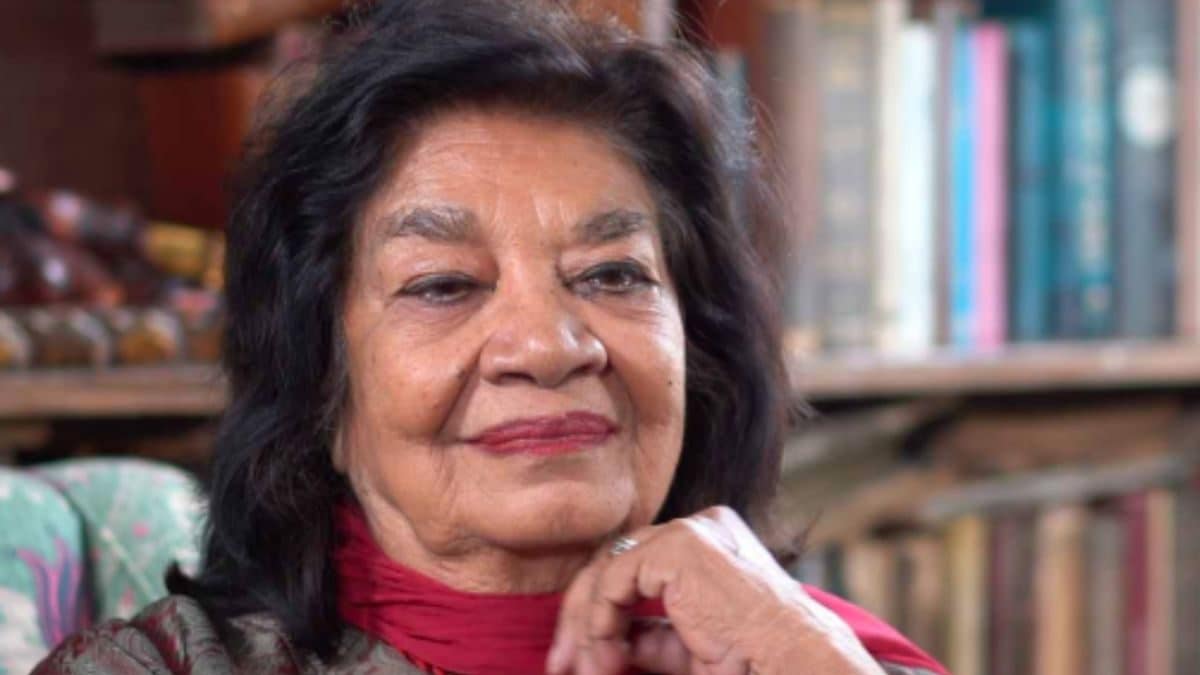Aruna Vasudev, a pioneering figure in Asian cinema, passed away at the age of 88, leaving behind an indelible mark on the global film landscape. Despite battling Alzheimer’s and age-related health issues in her later years, Vasudev remained a dedicated advocate for the arts, serving as a board member of Alliance Française de Delhi. Her unwavering passion and dedication propelled her to establish groundbreaking initiatives that elevated Asian cinema to global prominence.
A Trailblazer in Asian Cinema
Vasudev’s contributions to the world of film were immeasurable, with her vision shaping the trajectory of Asian cinema. She spearheaded the founding of “Cinemaya: The Asian Film Quarterly,” a seminal publication dedicated to showcasing and analyzing the richness of Asian cinema. She also established the “Network for the Promotion of Asian Cinema” (NETPAC), a crucial platform for promoting and supporting Asian filmmakers and films on an international stage.
Vasudev’s dedication to fostering intercultural understanding through cinema culminated in the creation of the “Osian Cinefan Film Festival.” This annual event celebrated the diversity and brilliance of Asian cinema, offering audiences a unique opportunity to engage with diverse cinematic narratives and styles. Her tireless work helped to raise the global profile of Asian cinema, demonstrating its power to connect and inspire audiences worldwide.
A Scholarly Approach
Vasudev’s profound understanding of cinema was rooted in her academic background. She earned a PhD from the University of Paris for her seminal thesis on the censorship of Indian cinema, highlighting her rigorous academic approach to film analysis. Her work, however, went beyond theoretical research; it was infused with a passionate love for the art form.
Vasudev’s work was widely recognized, garnering prestigious awards such as the “Chevalier de l’Ordre des Arts et Lettres” from the French government, the “Korea Prize” from the Busan International Film Festival, the “Star of Italian Solidarity,” and the “Kalpana Chawla Award for Excellence” for women in India. These accolades underscored her tireless efforts to bridge cultural divides and promote the shared language of cinema across the globe.
Beyond Academia: A Visionary Producer and Director
Beyond academia, Vasudev’s impact on the film industry was profound. During the 1960s and 1970s, she directed and produced a series of documentaries for international organizations including Swedish TV, Belgian TV, War on Want, Canadian International Development Agency, Doordarshan, and the Films Division of India. These documentaries showcased her ability to craft compelling narratives, offering a glimpse into diverse realities through the lens of film.
Shaping Cinematic Discourse
Vasudev’s legacy extends beyond film production to the realm of critical discourse. Her work as an editor and co-editor on several books, including Jean-Claude Carriere’s “In Search of the Mahabharata,” solidified her position as an intellectual figure in the cinematic world. She possessed a rare ability to curate and disseminate cinematic thought, enriching the intellectual landscape of cinema.
Her own publications, “The New Indian Cinema” (1987) and “Liberty and License in Indian Cinema” (1979), stand as seminal works for understanding the complexities of Indian cinema. They offer valuable insights into the evolution of Indian filmmaking and its intricate relationship with socio-political realities. She also made significant contributions to global cinematic literature, co-editing works such as “The World of Kenji Mizoguchi” by Tadao Sato and “When Strangers Meet: Vision of Asia & Europe in Film.” These collaborative endeavors illustrate her dedication to fostering intercultural exchange and enriching global cinematic discourse.
A Lasting Legacy of Inspiration
In the memory of those who knew her, Vasudev will be remembered as a warm and insightful individual, her passion for cinema a constant presence in her life. Her work transcended cultural and geographic boundaries, leaving an indelible mark on the global film landscape. She not only brought Asian cinema to the world but also contributed to its critical appreciation, fostering understanding and appreciation for its diversity and brilliance.
Vasudev’s contributions to cinema are as relevant today as they were decades ago. In an increasingly interconnected world, her unwavering advocacy for Asian cinema continues to serve as an inspiration for filmmakers and cinephiles alike.
Take Away Points
- Aruna Vasudev was a pioneer in bringing Asian cinema to a global audience through initiatives like “Cinemaya: The Asian Film Quarterly” and NETPAC.
- Her academic background in cinema censorship and her work as a producer, director, and writer gave her a unique perspective on the evolution and power of the art form.
- She was passionate about intercultural dialogue and believed cinema was a powerful tool for building bridges between cultures.
- Her lasting legacy continues to inspire filmmakers, scholars, and cinephiles around the world to appreciate the richness and diversity of Asian cinema.




